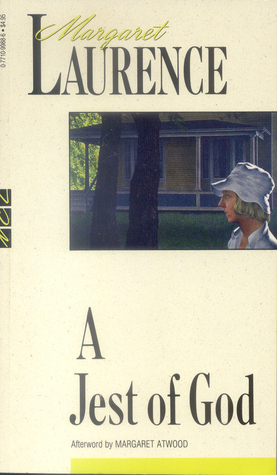
The Book of Eve
Book Description
When Eve’s meticulously crafted world crumbles after her husband’s sudden betrayal, she must confront the stark reality of a life she never truly chose. Torn between the remnants of her past and the tantalizing possibility of freedom, she embarks on a tumultuous journey through heartbreak, friendship, and self-discovery. As the walls close in, Eve’s fierce determination ignites a battle for her own identity—one that challenges societal expectations and redefines her very existence. Will she reclaim her voice and forge a new path, or will she remain a prisoner of the choices made for her?
Quick Book Summary
The Book of Eve by Constance Beresford-Howe is a poignant, character-driven novel that illuminates the struggles and resilience of a woman discovering her autonomy in late middle age. After her husband’s betrayal and years spent sacrificing her own needs for the sake of her marriage, Eve makes the daring decision to leave him and strike out on her own for the first time. Navigating the unfamiliar streets of Montreal, she encounters both hardship and friendship, gradually coming to terms with her new independence. Through challenges with poverty, isolation, and unexpected alliances, Eve confronts not only the consequences of her choices but also the societal expectations that have shaped her life. Ultimately, her journey is one of empowerment, as she learns to accept herself and claim a measure of freedom and identity against all odds.
Summary of Key Ideas
Table of Contents
The Struggle for Female Autonomy
Eve’s journey begins in crisis, triggered by the collapse of her decades-long marriage after a profound betrayal by her husband. This shattering event forces her to reconsider the life she has lived, one shaped primarily by obligation and suppression of personal desires. The stark reality of her lost independence dawns on her, leading Eve to an act of both desperation and courage: she leaves her marriage, severing ties with the past in pursuit of something undefined but deeply necessary. This initial act of defiance is laden with fear and uncertainty, as Eve is immediately confronted by the vulnerabilities of age, solitude, and financial insecurity.
Confronting and Healing from Betrayal
Building a new life, Eve navigates the anonymities and indignities of lower-class Montreal. She struggles with poverty, loneliness, and the challenges of living on her own for the first time. Yet, amidst these hardships, she forms meaningful connections with those on the margins of society—individuals who offer camaraderie, solidarity, and occasional humor. Through these relationships, Eve learns to view herself not as a victim of circumstance, but as an equal participant in the uncertainties and joys of life. Her friendships become a vital lifeline, allowing her to experience moments of happiness and growth.
The Transformative Power of Friendship
Central to Eve’s journey is her reckoning with societal expectations regarding age, gender, and propriety. The narrative critiques the roles that women, especially older women, are expected to fill—as dutiful wives, selfless mothers, and silent supporters. Eve’s defiance of these roles is met with both external condemnation and internalized guilt. However, as she persists, her struggle becomes symbolic of a larger feminist assertion: the right of women to chart their own paths irrespective of age or status. Through Eve, Beresford-Howe questions the possibility—and the cost—of genuine autonomy for women embedded within a patriarchal society.
Challenging Societal Expectations of Women
With time, Eve’s isolation transforms into self-reliance. She discovers reserves of strength and creativity, embracing her vulnerabilities and celebrating small victories. The narrative charts her experimentation with artistic expression, moments of laughter, and the gradual rebuilding of self-worth. Eve’s journey is not linear; it is fraught with setbacks and doubts. Nevertheless, her persistence allows for a reimagining of what it means to grow older and what it means to be a woman outside the traditional family structure. Through hardships, Eve slowly replaces regret with hope and guilt with self-acceptance.
Rediscovering Self and Reclaiming Identity
In the end, Eve’s story resonates as one of hard-won empowerment. She remains conscious of her new life’s limitations but also its possibilities, having learned to trust and value her own voice. The Book of Eve concludes on a note of realism and optimism, suggesting that the forging of a new identity, though painful and fraught, is possible even late in life. Eve’s transformation invites readers to consider their own freedoms and constraints, and to reflect on the courage required to reclaim one’s existence in the face of societal and personal challenges.
Download This Summary
Get a free PDF of this summary instantly — no email required.





